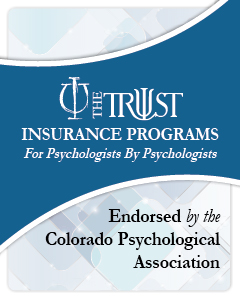Psilocybin-Assisted Psychotherapy for those with Advanced Cancer: An Overview of the Current RCT Underway at the University of Colorado DenverSpeakers: Kristin Kilbourn
CE credits offered: 1 It is estimated that 30-40% of those diagnosed with cancer experience clinically significant levels of anxiety and depression and approximately 25% of advanced cancer patients experience elevated levels of existential distress. Current pharmacological and psychological treatments have shown limited and mixed effectiveness. Preliminary research suggests that psilocybin-assisted psychotherapy (PAP) may improve cancer-related distress and there is a need for large clinical trials to examine the safety, feasibility, acceptability and efficacy of PEP. This has led to a number of National Health Institute (NIH) funded clinical trials examining the effects of psychedelic-assisted psychotherapy in various medical populations. This presentation will present an overview of the National Cancer Institute (NCI) funded RCT of psilocybin-assisted psychotherapy (PEP) in individuals with advanced cancer that is currently underway at the University of Colorado and New York University (Co-PIs: Fischer & Ross). This double-blinded study will test the effects of PEP for distress and quality of life as well as evaluating potential psychological change mechanisms on mental health outcomes. We will present a review of the literature related to the use of psilocybin in those with cancer, provide an overview of our evidence-based PEP intervention, and discuss some of the challenges and lessons learned. Co-presenter is Dr. Shandra Levey-Brown from the Department of Family Medicine at the University of Colorado School of Medicine. Learning Objectives:
About Kristin Kilbourn
Dr. Kristin Kilbourn is an Associate Professor in the Department of Psychology on the CU Denver downtown campus. She is a core faculty member in the Clinical Health Psychology Doctoral Program where she is involved in teaching, mentoring and research. She has an active research lab and mentor graduate students in the area of psychosocial oncology, cancer survivorship and palliative care. Her research focuses on: 1) conducting clinical studies that examine relevant psychosocial, behavioral and biological outcomes for cancer survivors and their loved ones and, 2) designing psychosocial and lifestyle interventions aimed at improving quality of life in medical patients and family caregivers. She has received funding from the National Institute of Health (NIH) and the American Cancer Society (ACS), the Center for Disease Control (CDC), CDPHE (CCPD) and a number of cancer-related foundations. In addition to her teaching and research, she also provides psychotherapy for those managing the challenges of acute and chronic illness.
Return to Agenda |

